By: Zachary Draves
Before there was a modern Civil Rights movement, Jackie Robinson was a fighter for civil rights.
At a time when racial oppression touched every sector of American life including America’s pastime, Jackie lightly jogged to second base at Ebbets Field in Brooklyn for the Dodgers and changed the course of not only sports history but American history. Every April 15th, the entirety of MLB honors the life and legacy of #42 in every way imaginable, most notably every player, manager, and coach donning his number on their jerseys for this one day, which happens to be the only number retired throughout the league dating back to 1997.
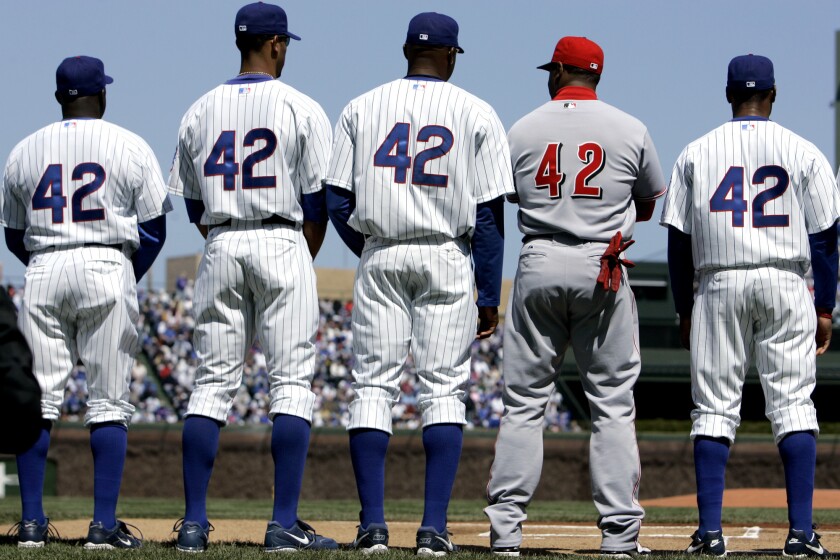
(Courtesy: Associated Press)
Seventy five years later, some but particularly those in the baseball hierarchy go through extravagant lengths to use whitewashed symbolism that they claim honors Jackie’s name but in truth do him and his broader impact to society a great disservice. This is not a new phenomenon as has been the case with other revolutionary black public figures such as Dr. Martin Luther King Jr., Muhammad Ali, Rosa Parks, and Nelson Mandela whose prophetic radical effect has been grossly distorted and watered down to push forward a narrative to make a certain segment of white america comofrtable.
“That’s not just Jackie Robinson’s story. That’s the story of Black history in a lot of ways. Our history has been catered to the ones telling it for generations — and a bulk of that was by storytellers who didn’t always look like us” says Justin Tinsley sports and culture writer for ESPN’s Andcaspe and Around the Horn panelist.
A differing perspective is that Jackie was not a baseball player but rather a man who just happened to play baseball.
First and foremost, the story of how Jackie Robinson broke into major league baseball is usually told through a lens of respectability politics in which he essentially turned the other cheek in the face of racism in order to get ahead. In other words, he pulled himself up by his bootstraps, worked hard, smiled, and kept his mouth shut about injustice, which couldn’t be further from the truth. A narrative that was captured in the classic 1950 film The Jackie Robinson Story in which he portrays himself and the late actor and activist Ruby Dee plays his beloved wife Rachel.
In reality, he was told to look the other way by Dodgers general manager Branch Rickey and to fit into a particular prototype of what Rickey wanted in the first black MLB player which was someone who could play the game the way it should, as Jackie certainly did, but become in Rickey’s words a player “with the guts to not fight back”.
That description was not in Jackie’s character by any stretch. He wasn’t the least bit shy in standing his ground and calling out bigotry and prejudice as evidenced by his years in the US army during World War II. In 1944, he was court martialed because he refused to give up his seat to a white soldier on a bus, eleven years before Claudette Colvin and Rosa Parks. Even though he was eventually exonerated, that racist trauma never left him.
At various times throughout his career and especially in the early years, Jackie was met with some of the most egregious forms of racism imaginable from fans, other players, teammates such as Dixie Walker, managers such as Cincinnati Reds manager Ben Chapman, and the KKK and all the while he remained silent and for a reason.
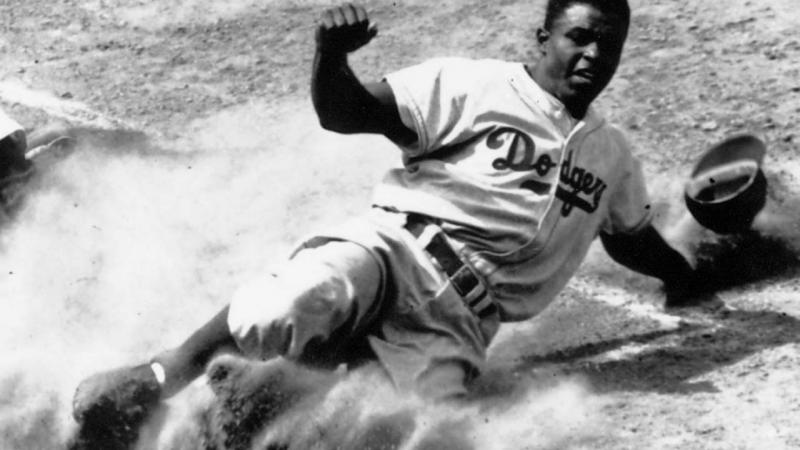
(Courtesy: Associated Press)
“This was on a daily basis. Jesse Jackson calls him a “suffering servant” because that’s exactly what he was. No one could’ve blamed him had he exploded, but he didn’t. He knew that if he blew up and did something crazy he’d potentially make it that much harder for the next Black man to get in” says Tinsley.
But that all changed after his career ended in 1957.
Jackie soon became who Jackie really was as he took an active role in the Civil Rights movement. He worked alongside the likes of Dr. Martin Luther King Jr., the NAACP, and the Southern Christian Leadership Conference. He also found a place in the boardroom as he became the Vice President of the New York coffee company Chock Full o’Nuts, started a black owned bank in Harlem, and developed a construction company to build housing in black communities.

(Courtesy: Getty Images)
On the political front, he was a registered independent that wasn’t to be exploited by one party or another as he supported the likes of Richard Nixon, John F Kennedy, Nelson Rockafeller, and Hubert Humphrey with clear and ucompromising focus on civil rights. Some of those endorsements along with some of his positions on issues such as the Vietnam War and Black Nationalism put him at odds with the likes of Ali, Malcolm X, and others associated with the Black Power wing of the movement.
But the ironic thing about it is that he found commonalities with those fractions when it came to his support of the proposed boycott of the 1968 Olympics, his backing of Curt Flood’s challenge of the Reverse Clause, and when he wrote in his autobiography how he wouldn’t stand for the national anthem or salute the flag, a fact that came to life at the height of Colin Kaepernick’s kneeling protest. Much like Kaepernick, he was also fierce critic of police brutality and in 1968 supported the Black Panther Party when 10 members were assaulted by mob of off duty officers in a New York courthouse
This was the real Jackie Robinson and not the sanitized quiet version.
Fast forward to the present day and much like the aspirations that Dr. King spoke of in his I Have a Dream speech at the 1963 March on Washington not being fulfilled, the dreams that Jackie had have so far met the same fate.
Prior to his death in 1972, Jackie spoke in Cincinnati before that year’s World Series and spoke of his dream to see a black manager in baseball, which at that time there were none. While there has been a lineage of black managers that followed suit, the game is sorely lagging behind with only two current black managers in Dave Roberts and Dusty Baker. Furthemore, it is way past time for the national pastime to catch up to the realities of 21st century America when it comes to race and diversity with only 8% of the current black players with a rapid declining viewership to follow and much like how slow the game is played, MLB has been slow when it comes to speaking out on racial justice compared to other leagues such as the NBA and WNBA during the Summer of 2020.

(Courtesy: Youtube)
All of which is a recipe for disaster that would make Jackie turn over in his grave. If MLB was sincere in its celebration of this brave and courageous man then they would actually put into practice the very things that he fought and died for. If they can’t do that then they not only can’t be trusted but they will soon be a dying brand if they aren’t close to that already given the recent strike.
In the end, the legacy of Jackie Robinson seventy-five years after he made his historic debut should really be about what he did off the field and not just on it. In this current climate with black history under assault in various states, this is a legacy that cannot afford to be diminished to fit a certain narrative about the politics of respectability that wasn’t in keeping with his entire being to begin with. He challenged and confronted structural racism before there was ever such a term.
/cdn.vox-cdn.com/uploads/chorus_image/image/68764219/50919087.0.jpg)
(Courtesy: MLB Photos)
“When you look at his overall legacy, I do believe it’s one that is deserving of the admiration and the deep reverence it receives. He sacrificed so much. His family sacrificed so much. That much is undeniable. Jackie Robinson deserves to be celebrated because what he did not only changed sports, but it changed so much about America” says Tinsely.
Jackie Robinson was a man of many traits. Character, tenacity, courage, love, dynamism, and an unapologetic blackness who never forgot what his purpose was.
The question for MLB is, what is their purpose?


 NFL
NFL
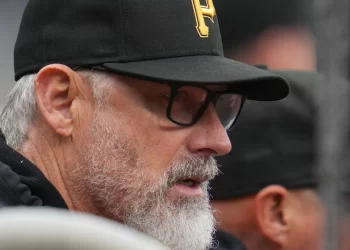
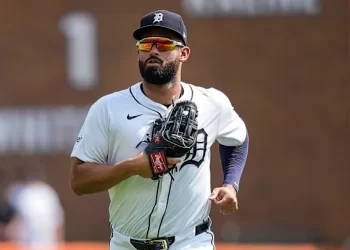

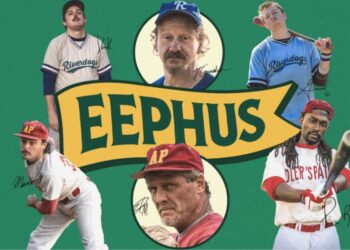


Comments 1